Settlement Heirachy Used to Classify Our Communities Click here to show/hide the table
| Settlement | Code | Population Size | Description | Examples |
|---|---|---|---|---|
| Rural Area | 0 | Not Applicable | Relatively few isolated homes if any and sparsely population (i.e., a population density less than 100 people/km2) | Most of the Annapolis Valley, West Paradise |
| Hamlet | 1 | < 250 | Small cluster of houses, typically lacks a compact core, few if any businesses (Density typically 100-300 people/km2) | Centrelea, Paradise, Granville Ferry, Margaretsville, Round Hill, Tupperville |
| Village | 2 | 500-1,500 | Variable in size, villages may have a discernable but limited business centre/core; typically smaller than towns, less complex economically (often lack bank & have limited business diversity) and offer fewer services.Density typically 300-500 people/km2 | Lawrencetown, Aylesford, Baddeck, Cambridge, Falmouth, Pugwash, Canning, Port Williams |
| Town | 3 | 1,500-7,500 | Larger than villages, usually include a full range of businesses and services in an obvious commercial core; can support many amenities attributed to cities such as museums, universities, multiple financial institutions etc. Density typically 300-500 people/km2 | Middleton, Wolfville, Windsor, Pictou, Antigonish, Shelburne, Digby, Lunenburg (Chester,Tatamagouche, Weymouth) |
| Large Town | 4 | 7,500-30,000 | Full size mall/big box stores, franchises, transit emergent but difficult; Density typically > 500 people/km2 | Truro/BibleHill, New Glasgow, Glace Bay, Amherst, Yarmouth, Bridgewater, Kentville/New Minas, Kingston/Greenwood |
| Small City | 5 | 30,000- 100,000 | Cities are larger than towns and more densely populated. Frequently cities merge with, or incorporate surrounding areas and often the centre of power mainly rests in the cities not towns.Regional airport. Small transit system. | Sydney, Charlottetown, Fredericton, Red Deer, Nanimo, Lethbridge, Peterborough, Kamloops, Sault Ste. Marie, Prince George, Bellville, Fort Mac, Grand Prairie, North Bay, Brandon, Cornwall |
| Medium Size City | 6 | 100,000-300,000 | More robust airport, museums, Costco? Symphony; Medical School; Not uncommon to have population density > 800 people/km2 | Thunder Bay, Moncton, St. John's, Saint John, Saskatoon, Regina, Barrie, Kelowna, Windsor, Guelph, Kingston, Sudbury |
| Large City | 7 | 300,000-1,000,000 | Signficant Airport; Multiple Universities; Cultural center (ballet/opera); Large Business HQ; Attract more multicultural/diversity, Ikea? | Edmonton,Winnipeg, Hamilton, Quebec, St. Catharines–Niagara, Victoria, London, Kitchener, Halifax, Oshawa |
| Metropolis | 8 | >1,000,000 | Major League Sport Franchises, Large Interanational Airport; LRT/Subway: Typically much Higher density (>1200 people/km2) | Toronto, Montreal, Vancouver, Calgary, Ottawa |
Building Local Communities Through Local Economic Solutions
(CLICK FOR VIDEO)
-
Community Banks
Vancity was founded in 1946 to provide financial services to people from all walks of life. In 1946, 14 Vancouverites established Vancouver City Savings Credit Union, an open-bond credit union that allowed any resident of the city to join.. It is a co-operative, which means the bank is owned by its members and democratically controlled on the basis of one member, one vote. Vancity shares 30% of its net profits with members and communities—we've shared over $306 million with members and communities through Shared Success since 1994. Vancity's innovative approach to serving the financial needs of its members and the community has led to a number of firsts among Canadian financial institutions, including the first to offer mortgages to women without a male co-signor, the first to offer a socially responsible mutual fund and the first to become carbon neutral. Click here to find out more
Locate this case study on adjecent mapWhy Shop, Live and Work Local
Things you can do to strengthen the local community:
Buy – When you buy local, you’re supporting local businesses and promoting local employment.
Bank – When you use local banks, you’re allowing the bank to lend your deposits to your friends and neighbors as well as local businesses.
Recycle and Reuse – Buy and selling your items to other people saves money and keeps useable goods out of the landfill. The cash you make stays in the community as well.
Hire Local – Helps reinvest in the community and the people you hire live and spend the money they earn in the community.
Invest – The small ‘mon and pop’ businesses are the cornerstone of any local economy. The local owner then buys what he needs to run his local community. Click here to find out moreLocate this case study on adjecent mapHow Hurricane can Affect a Local Economy
The majority of the damage was to families, especially those without insurance. 350,000 people have registered with FEMA for emergency aid. The expected flood claims could rise to 500,000 claims. Many of the losses will not covered and will leave families worse off and unable to recover. Individually, loses are significant, together it makes for a local financial disaster that will take years to recover from. The local economy will eventually recover, but the local community will forever be changed Click here to find out more
Locate this case study on adjecent mapSweat Currency
Habitat for Humanity operates affiliates across the globe, each affiliate is a self-sustaining and locally governed. They provide mortgage financing, home building to low income families. They provide mortgage financing, home building to low income families. Around the globe Habitat for humanity has built over 500,000 homes. Hard working partner home buyers need a hand up to build a better future. Click here to find out more
Locate this case study on adjecent mapLocal Currency
The Salt spring Island Monetary Foundation is the society responsible for the design and maintaining the currency in Salt Spring Island. The society uses the proceeds to fund community projects and promoting local businesses. Canadian dollars are held in reserve in exchange for Salt Spring Dollars. Merchants can redeem the Salt dollars for Canadian currency. Legally the currency is considered a gift certificate that can be redeemed anywhere in Salt Spring. Click here to find out more
Locate this case study on adjecent mapLocal Currency
The Kawartha Loon Exchange is owned by the businesses. The Loon has the same value a Canadian money. To use and accept the Kawartha Loon, a person or business has to pay an annual membership fee of $25. The town eventually hoped to use the loon to localize the economy and change the lifestyle of the town. By spending local dollars, locally, the town hoped to decrease the carbon footprint while increasing employment and economic growth. Click here to find out more
Locate this case study on adjecent mapCommunity CEDIF
The Port Pub was the brainchild of six friends sharing tall tales and drinks that wanted to see a pub in Port Williams. After three years of hard work, the pub was able open as a spot that the Port Williams residents can walk home from. The pub employs local people, buys local produce and meats, which reduces the ‘food kilometres’. When you shareholders are you friends, your customers and your fellow employees, it should be the makings of the best place to be when someone lives or visits Port Williams. Click here to find out more
Locate this case study on adjecent mapFarming CEDIF
Being able to grow more food, means more income for local farmers and creates jobs. By investing in local farmers, FarmWorks increases food sufficiency, provides economic stimulus the reinvigorate rural communities. Food production is a cornerstone industry the uses the resources of both land and sea to produce goods that help the economy grow. Loans are provided by FarmWorks to increase economic, health, social, and environmental benefits that come from producing and eating locally grown food. Click here to find out more
Locate this case study on adjecent mapFamily CEDIF
Set in the beautiful Cape Breton Island, the park has same day access to much of the island, as well has majestic beaches and water and fishing tours. Local pubs, museums and the Celtic Music Centre are all available and well appreciated by the park visitors and the community at that helped fund and build Sunset Sands. From Victoria Day weekend May to Thanksgiving Day in October there’s lots of fun and activities to be had at the Sunset Sands, in Port Hood, NS. Click here to find out more
Locate this case study on adjecent mapCommunity Economic Funds
Metro Works is based on referrals from social workers, counselors, doctors and teachers, who think someone would benefit from the Options Work Activity Program. While many of the participants are or were on social assistants benefits, it provides an opportunity to receive training, counselling and definable plan to find employment that would be suitable for the individual. They also have a learning centre that provides adults 19 years and older, tuition free Adult Learning Program. It aims to provide adult learners education in literacy and math skills that may be a barrier to employment. The opportunity exists for leaners to attend Nova Scotia Community College (NSCC) in the Nova Scotia Adult High School Diploma. Click here to find out more
Locate this case study on adjecent mapCommunity Co-operative
<The guiding principles of the Mondragon were based in humanism and the co-operative movement, namely cooperation, participation, social responsibility and innovation. Today Mondragon is a worldwide corporation covering finance, distribution, knowledge and industry. While they have had failures, the future of Mondragon is secures. Internationally, they have sales of 15 billion Euros and employ 14,000 foreign workers and 38,000 in Spanish co-operatives. What started, essentially as a community economic development idea in 1956, has grown to a worldwide movement. Click here to find out more
Locate this case study on adjecent mapCommunity Bonds
The government endorsed a plan to tap into the local capital for local ventures, by allowing the provincial government to guarantee the investments. The grass roots of the program was its potential to help rural communities. The bonds would develop programs within their own communities, funded by local residents. In July of 1990, the Saskatchewan Community Bonds was formally started as a government program to support local investment, or Community Economic Development (CED) in rural and urban communities.. Click here to find out more
Key Concepts
Local Economies and Currancies
Torjman (2007) suggests that shared places help to promote strong and vibrant communities because it helps to build resilient communities capable of prospering in times of adversity. By bringing together people, a foundation for engagement is provided whereby which people can find common understanding. From this engagement and understanding, we are able to work towards common goals to help further support and build stronger communities. Shared spaces present great opportunities for great discussion. (Torjman, S. (2007). Shared Space: The Communities Agenda. ON: The Caledon Institute of Social Policy) .
Explore this conceptCommunity Economic Development Investment Funds(CEDIF)
The concept of shared and public spaces is rooted in the notion of place. Whether it be the physical space in which we live or emotional place, place provides meaning and belonging in our daily lives. Places are the foundation upon which a network for people can be built. The importance of place takes significance when we think about well-being and development; quality of places and their attributes impacts our health, social cohesion, and economic welfare (Torjman, S. (2007). Shared Space: The Communities Agenda. ON: The Caledon Institute of Social Policy).
Explore this conceptCommunuity Development
The purpose of shared spaces is to bring people together, they are a location whereby which human interaction occurs. The way a place is planned ultimately impacts community health as increased social activity helps to foster an environment of support, security and trust. The socio-spatial attributes associated with these places help create unique spaces for community gatherings. Regardless of their size or geometry, public spaces serve as a means of community development and social development creating and reinforcing social bonds among people. (Friedman, A. (2014). Planning Small and Mid-Sized Towns. NY: Routledge).
Explore this conceptClick on the images below to learn more about concepts about ecological design that creates economic opportunities
-
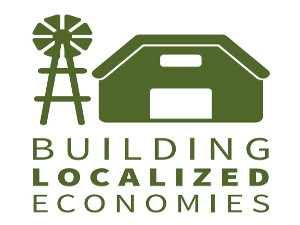 BUILDING LOCALIZED ECONOMIES (n.d.);http://ecologynorth.ca/project/project/
BUILDING LOCALIZED ECONOMIES (n.d.);http://ecologynorth.ca/project/project/ -
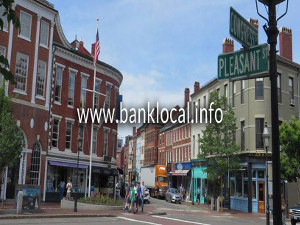 LocalBank; http://banklocal.info/
LocalBank; http://banklocal.info/ -
 It's Like Momey, But With no dead Presidents (3 May,2008); http://www.slate.com
It's Like Momey, But With no dead Presidents (3 May,2008); http://www.slate.com -
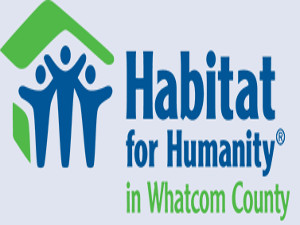 Habitat for Hummanity (n.d.); http://www.hfhwhatcom.org/
Habitat for Hummanity (n.d.); http://www.hfhwhatcom.org/
-
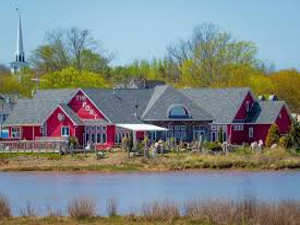 http://www.starrspointloop.com/the-port-pub--bistro.html
http://www.starrspointloop.com/the-port-pub--bistro.html -
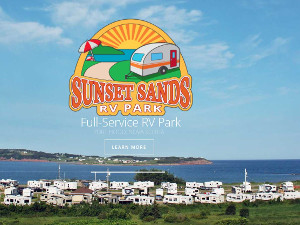 https://www.sunsetsands.ca/
https://www.sunsetsands.ca/ -
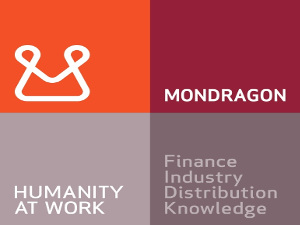 https://ccednet-rcdec.ca/about
https://ccednet-rcdec.ca/about -
 https://www.sfu.ca/ced/news_events/5_principlesofCED.html
https://www.sfu.ca/ced/news_events/5_principlesofCED.html
